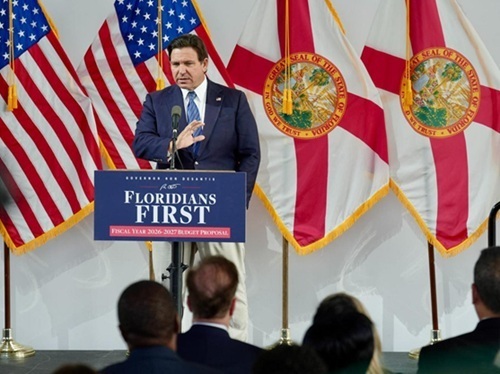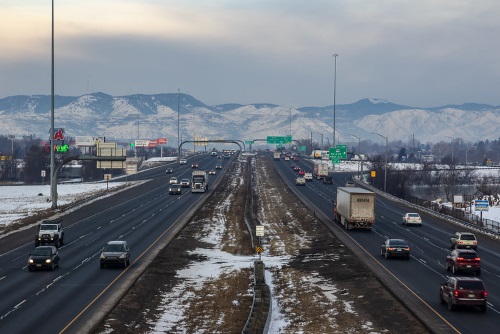A new research paper compiled by the Southwest Energy Efficiency Project (SWEEP) said that Colorado missed out on $7 billion in transportation funding since 1991, largely because the state has not raised its gas tax to keep up with inflation.
[Above photo bu the Colorado DOT.]
The report – entitled Sustainable Transportation Funding for Colorado: Modernizing the Gas Tax to Improve Air Quality, Protect the Climate, and Save Money – recommends policy reforms to increase transportation funding, while at the same time helping Colorado build a cleaner and more efficient transportation system.

“We need to do more than just raise money to improve our road network,” explained Travis Madsen, SWEEP’s transportation director and co-author of the report, in a statement. “Modernizing the gas tax can drive Colorado in a better direction.”
The paper noted that Colorado voters rejected ballot initiatives in 2018 and 2019 that would have generated additional funds for transportation. As a result of those failed initiatives, state legislators were forced to fill in transportation investment gaps by transferring money from the general fund, SWEEP said.
To modernize Colorado’s fuel tax, the group’s paper recommends several key steps:
- Raise the gas tax or create a new transportation impact fee. Adding 20 cents per gallon would return the state gas tax to the level it would have been at today if the state had indexed it to inflation in 1991.
- Stabilize revenue by indexing the gas tax to inflation, indexing to total fuel consumption, and extending the tax to all transportation fuels on an energy-equivalent basis. This will ensure that all vehicle owners pay into the system, regardless of fuel, while encouraging more clean and efficient transportation in Colorado.
- Avoid additional fees for electric vehicles (EVs). Saving money on fuel is the primary reason people buy electric vehicles. Raising the EV fee would erode potential savings and reduce the attractiveness of electric vehicles, slowing electric vehicle deployment and delaying their benefits. Under the formula above, electric vehicle owners will automatically pay more as more people drive on electricity.
 States
States
NCDOT Staff Participate in ‘Explosive’ Technical Training
December 19, 2025 States
States

